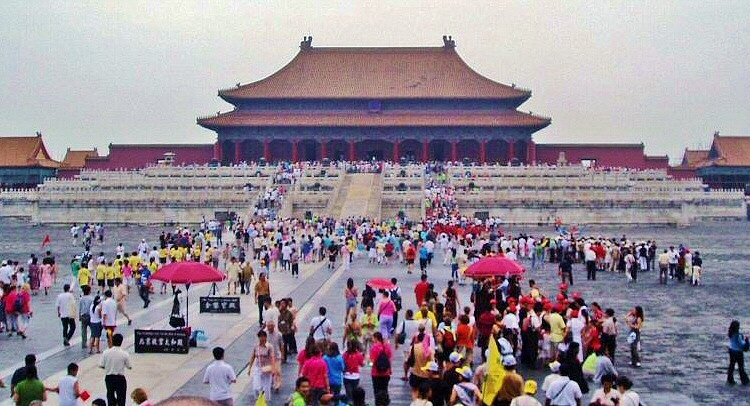
China Is Not Soviet Union By Sohail Ahmed Soomro
The new cold war has reached its climax. China has been challenging the uni-polarity of the US on every front. Countering China has become the supreme interest of the US in the twenty first century. Many scholars are of the view that the new cold war cannot end up in a similar fashion to the first: downfall of erstwhile USSR. Against the backdrop of the dissolution of the USSR, many authors came up with sweeping statements that communism has thrown up the sponge.
In this relation, Francis Fukuyama was on the forefront who compiled his exposition in his notable work—’The End of History and the Last Man’. He concluded, “The end-point of mankind’s ideological evolution and the universalization of Western liberal democracy as the final form of human government.” In fact, the war against communism has never ended as China has taken up the mantle. China is the potential competitor which makes this game challenging for the US. As a matter of fact, there many factors that distinguish China from then USSR.
First of all, there is a difference in the nature of power. The former USSR was obsessed with defence and a major chunk of the economy was diverted to make it a global military hegemon. The excessive focus on defence hampered its economic growth significantly. On the contrary, China has expanded its economic influence globally vis-à-vis the Belt and Road Initiative (BRI). According to available statistics, the average defence spending of former USSR was relatively above 15 percent of GDP. However, Chinese defence spending is merely below 6 percent. Owing to high defence spending and low human development, the erstwhile USSR lost the confidence of its own people. Quite the opposite, China’s economic focus has improved its soft power even beyond its own boundaries. In a similar vein, the nation of around 1400 million lifted roughly half of the population from poverty in an unprecedented manner.
In the second place, Professor Amitai Etzioni, renowned American Sociologist, said, “China has always emphasized regional dominance peacefully, but the USSR flagrantly ran after global dominance by hook or by crook.” Historically, China has never tried to invade any nation except for a few border incursions in the recent past. Deng Xiaoping—’Architect of Modern China’—formulated peace and development as the tenet of Chinese foreign policy. Time and again, he used to quote a Chinese proverb, ‘Hide your strength, bide your time.’ Resultantly, China’s global standing and credibility have ameliorated and turned it into a robust state. The Soviet followed the ideology of Vladimir Lenin: Comintern Policy. It was based on expanding communism globally with diverse nations. Consequently, it expanded to the Baltic region in the west and took over Central Asian nations in the south.
Another difference is of national identity and nationalism. The former USSR was comprised of diverse nations. Therefore, there was dire need to evoke a sense of unity among them, but the multinational Soviet Union failed to create a clear national identity. However, China is just a single nation. According to statistics, around 92 percent of China’s population is ethnically Hans. This ethnic cohesion is an essential tool for creating a sense of national integration. Moreover, the people of China are bound by a mixture of ideologies including communism and Confucianism.
In addition, the nature of communism is another factor that distinguishes China from the USSR. The Soviet model of communism was top-down in nature, but it is down-to-top in the case of Beijing. For any ideology to thrive, it is imperative to go through a sustained process by every section of society. Peasants brought about the communist revolution in China. The lower and lower middle-class population had a first-hand understanding of the ideology. In Russia, communism was imposed by the educated middle-class and political elite. Consequently, it was beyond the comprehension of the lower strata of society. All in all, its effectiveness ebbed away with each passing day.
Lastly, in the face of a domestic and external crisis, the Soviet Union often used repression as a tool to suppress voices, but China has constantly reformed whenever there arises any problem. There were periods of reform, both mild and radical, during the Soviet Union era, but the chronic institutional inflexibility persisted and inexorably shook the foundations of the Soviet regime both economically and ideologically. By contrast, the Chinese believe that “reform and opening up” includes many social, economic, and political aspects, and it is an ongoing process, rather than a mission that has been accomplished.
In short, the new cold war for the US can never be as simple as former one was. The Soviet Union was fraught with fault-lines whose exploitation proved to be a plain sailing for the US. In the wake of a new cold war, the competition is thrilling between the global powers as both possess immense economic power. China has been enhancing its clout by dint of economic partnership with many countries around the world. The US will go to any length to curtail China’s rise; be it in terms of Indo-pacific competition or through accusations of human rights violations. Meanwhile, China continues to operate in an extremely clever manner which has made the equation complicated for Washington.
China Is Not Soviet Union By Sohail Ahmed Soomro
Source: https://nation.com.pk/2022/07/25/china-is-not-soviet-union/


